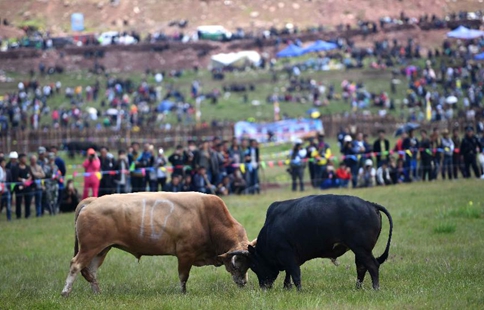KATHMANDU, July 18 (Xinhua) -- At least 25 endangered one-horned rhinos died in Chitwan National Park (CNP), Nepal's largest habitat of rhinos, in the fiscal year 2016-17.
According to the Chitwan National Park, out of the total deaths in the last fiscal year, 21 had a natural death while four died due to poaching activities and electric shock.
"We have recorded death of 25 rhinos last year where 21 had natural deaths, two died due to electric shock and two died in course of poaching," Nurendra Aryal, assistant conservation officer of the CNP, told Xinhua on Tuesday.
Two poaching incidents occurred in the last fiscal year, ending the successful two consecutive years of zero poaching of these valuable creatures.
A one-horned rhino was shot by the poachers in a forest in eastern district Rautahat in last August, which died in the course of medical treatment after two weeks while the second was shot dead in April after hacking the horns.
Rhinos are regularly killed by poachers for their body parts, especially their horns which are believed to be worth thousands of dollars in the global market. The horn is also regarded as a traditional medicine in a few countries.
Government records show that most poaching occurred during the decade-long armed conflict in Nepal between 1996 and 2006.
CNP, located some 150 km from the capital city, is renowned for protection of one-horned rhinoceros. According to the Department of National Parks and Wildlife Conservation, out of total 645 rhinos in Nepal, over 600 are in Chitwan National Park alone.
Meanwhile, CNP transferred eight rhinos to two different national parks in the last fiscal year. This relocation is part of a decision of the Nepalese Ministry of Forest and Soil Conservation in 2015 to transfer 30 one-horned rhinos in total from Chitwan National Park to two national parks within three years.
Aryal said, "In 2016-2017 fiscal year, we relocated five rhinos to far-western region based Shuklaphanta National Park and three rhinos to Bardiya National Park. The relocation process will continue in this fiscal year as well."
The relocation of the endangered species aims to prevent possible epidemic dangers and natural disasters and increase the population of healthy rhinos.

















